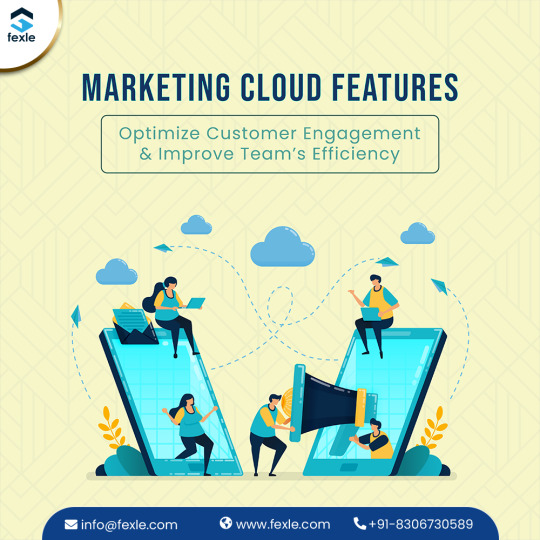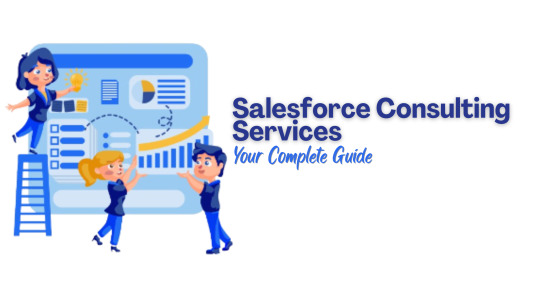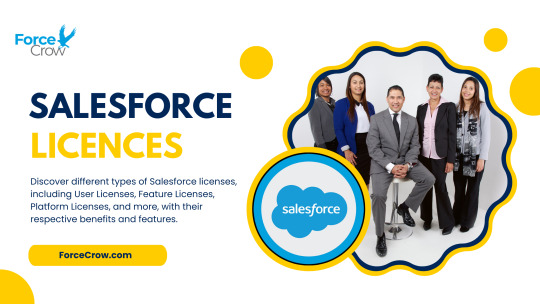#Salesforce CRM features
Explore tagged Tumblr posts
Text
Top 10 Salesforce CRM Features to Boost Business Productivity

Discover the top 10 Salesforce CRM features that are revolutionizing how businesses manage customer relationships, automate processes, and drive growth. This detailed guide from Advent IT Solution explores key functionalities like workflow automation, real-time analytics, AI-powered insights, and customizable dashboards. Whether you're a small business or an enterprise, learn how Salesforce can boost productivity and enhance customer engagement.
0 notes
Text
Ever wondered how to truly represent the complex web of relationships in your business within Dynamics 365? Our latest article dives deep into "Connections" – a flexible and powerful feature that lets you define how records are related, not just that they are. Say goodbye to rigid data models and hello to richer insights! #Dynamics365 #DynamicsCRM #CRMStrategy #BusinessInsights #RelationshipManagement #TechTips #CRM (Consider pairing with an image related to networks or connections)
#Ad-hoc Connections#Business Relationships#Connection Roles#CRM Best Practices#CRM Connections#CRM Customization#CRM Data Model#CRM Features#CRM Flexibility#CRM Relationships#Customer Relationship Management#Data Management#Dynamics 365#Dynamics 365 Tips#Dynamics CRM#Entity Relationships#Microsoft Dynamics#Power Platform#Salesforce Alternative#System Customization
1 note
·
View note
Text

A CRM is a powerful tool that can help your small business grow smarter and faster by improving customer relationships, sales tracking, and marketing efforts. The best CRM for your business depends on your specific needs, budget, and technical comfort.
Start by trying out free options like HubSpot CRM, then explore paid tools like Zoho CRM or Salesforce Essentials if you need more advanced features. The right CRM will help you stay organized, boost sales, and deliver better service — the keys to thriving in a competitive market.
#best CRM for small business#small business CRM software#CRM tools for small business#affordable CRM#CRM comparison#HubSpot CRM review#Zoho CRM features#Salesforce Essentials#Pipedrive CRM#Freshsales CRM#CRM automation#sales pipeline management#customer relationship management#CRM for startups#CRM software 2025#CRM integration#easy to use CRM#CRM pricing#CRM for small teams#CRM benefits
1 note
·
View note
Text
#salesforce#salesforce cloud#CRM#CRM platform#customer service#Features of Salesforce#manage customer interactions#Service Cloud#Marketing Cloud#Commerce Cloud#Einstein AI#Analytics Cloud#Community Cloud#Mobile App#Operational Efficiency#Scalability#Security
0 notes
Text
Compare Salesforce and NetSuite to find the best CRM for your business. Explore their differences in features, pricing, scalability, and integration capabilities to make an informed decision based on your organization’s needs.
#Salesforce vs NetSuite#CRM comparison#business CRM software#Salesforce features#NetSuite ERP#cloud CRM#CRM software 2024.
0 notes
Text
Simplify Your Marketing Workflow with Salesforce Marketing Cloud Consulting Services









Streamline your marketing processes and boost productivity with Marketing Cloud. Automate tasks, improve collaboration, and gain valuable insights. Focus on what matters most - building strong customer relationships.
Learn more here!
#salesforce consulting services#salesforce gold partner#crm consulting#fexle services#hire fexle#salesforce crm#Salesforce marketing cloud#Consulting services#Marketing cloud features
0 notes
Text
Boosting Lead Conversion Rates with Salesforce Sales Cloud
In the fast-paced world of sales, converting leads into customers is crucial for driving revenue growth and achieving business success. Salesforce Sales Cloud, with its comprehensive suite of tools and features, provides a robust platform to enhance lead conversion rates. This article explores how Salesforce Sales Cloud can be leveraged to boost lead conversion, highlighting its key features, integration with Salesforce Data Cloud, and providing a detailed Salesforce implementation guide.
Understanding Salesforce Sales Cloud
Salesforce Sales Cloud is a leading Customer Relationship Management (CRM) platform designed to streamline sales processes, improve lead management, and optimize sales performance. By automating routine tasks and providing actionable insights, Sales Cloud enables sales teams to focus on building relationships and closing deals.
Key Features of Salesforce Sales Cloud
Lead Management: Salesforce Sales Cloud offers advanced lead management capabilities, allowing sales teams to capture, track, and nurture leads efficiently. Features like lead scoring, assignment rules, and automated follow-ups ensure that high-potential leads are prioritized and engaged effectively.
Opportunity Management: Sales Cloud provides comprehensive tools for managing opportunities throughout the sales cycle. Sales reps can track deal progress, forecast revenue, and collaborate with team members to close deals faster.
Sales Forecasting: Accurate sales forecasting is essential for setting realistic targets and allocating resources. Salesforce Sales Cloud's forecasting tools provide real-time insights into sales performance, helping sales managers make informed decisions.
Workflow Automation: Automating routine tasks such as sending follow-up emails, scheduling meetings, and updating records saves time and ensures consistency in sales processes. Salesforce Sales Cloud's workflow automation enhances efficiency and productivity.
Customizable Dashboards and Reports: Sales Cloud offers customizable dashboards and reports that provide actionable insights into key metrics. Sales teams can monitor performance, identify trends, and optimize their strategies to improve lead conversion rates.
Enhancing Data Management with Salesforce Data Cloud
Effective data management is crucial for improving lead conversion rates. Salesforce Data Cloud complements Sales Cloud by providing a unified platform for managing and analyzing customer data. The integration of these two Salesforce clouds enhances data accuracy, accessibility, and insights.
Benefits of Salesforce Data Cloud Integration
Centralized Data Repository: Salesforce Data Cloud consolidates customer data from various sources into a single, unified platform. This centralized repository ensures that sales teams have access to accurate and up-to-date information, improving their ability to make informed decisions.
Advanced Data Analytics: With advanced analytics capabilities, Salesforce Data Cloud allows businesses to derive actionable insights from their data. These insights can be used to identify customer preferences, predict buying behavior, and tailor sales strategies accordingly.
Data Security and Compliance: Ensuring data security and compliance is paramount. Salesforce Data Cloud provides robust security features and compliance tools to protect sensitive customer information and maintain regulatory compliance.
Seamless Integration: The seamless integration between Salesforce Sales Cloud and Salesforce Data Cloud ensures a smooth flow of information between the two platforms. This integration enhances overall efficiency and accuracy in sales operations.
Implementing Salesforce Sales Cloud: A Step-by-Step Guide
A successful Salesforce Sales Cloud implementation requires careful planning and execution. Here is a step-by-step Salesforce implementation guide to help businesses get started:
Step 1: Define Objectives and Goals
Begin by defining clear objectives and goals for the Salesforce Sales Cloud implementation. Identify the specific challenges you want to address and the outcomes you aim to achieve with improved lead conversion rates.
Step 2: Conduct a Needs Assessment
Perform a thorough needs assessment to understand your current sales processes, data management practices, and technology infrastructure. This assessment will help identify gaps and opportunities for improvement.
Step 3: Assemble a Project Team
Form a dedicated project team comprising members from sales, IT, and other relevant departments. This team will be responsible for overseeing the implementation process and ensuring alignment with business objectives.
Step 4: Customize Sales Cloud
Tailor Salesforce Sales Cloud to meet your unique business requirements. Customize fields, workflows, and reports to align with your sales processes. Leverage Salesforce's extensive customization capabilities to create a solution that fits your needs.
Step 5: Data Migration and Integration
Migrate existing customer data to Salesforce Sales Cloud and integrate it with other systems such as marketing automation and customer support platforms. Ensure data accuracy and integrity during the migration process.
Step 6: Train Your Sales Team
Provide comprehensive training to your sales team on how to use Salesforce Sales Cloud effectively. Offer ongoing support and resources to help them navigate the platform and maximize its potential.
Step 7: Monitor and Optimize
Continuously monitor the performance of Salesforce Sales Cloud and gather feedback from your sales team. Use this feedback to identify areas for improvement and optimize the platform to drive better results.
Difference Between Sales Cloud and Service Cloud Salesforce
While Salesforce Sales Cloud focuses on enhancing sales operations, Salesforce Service Cloud is designed to improve customer service and support. Understanding the difference between Sales Cloud and Service Cloud Salesforce is crucial for businesses aiming to optimize their CRM strategy.
Key Differences
Primary Focus: Sales Cloud is geared towards sales processes, lead management, and opportunity tracking. In contrast, Service Cloud focuses on customer service, case management, and support ticket resolution.
Features: Sales Cloud includes features such as lead and opportunity management, sales forecasting, and workflow automation. Service Cloud offers features like case management, knowledge base, and omnichannel support.
Target Users: Sales Cloud is primarily used by sales teams to drive revenue growth. Service Cloud is used by customer service teams to enhance customer satisfaction and loyalty.
By leveraging both Salesforce Sales Cloud and Service Cloud, businesses can create a seamless customer experience from initial contact to post-sale support, further enhancing their overall efficiency and customer satisfaction.
Conclusion
Boosting lead conversion rates is a critical goal for any sales-driven organization. Salesforce Sales Cloud, with its advanced features and robust automation capabilities, provides a powerful platform to achieve this objective. By leveraging the integration with Salesforce Data Cloud and following a well-defined Salesforce implementation guide, businesses can streamline their sales processes, improve lead management, and drive revenue growth. Understanding the difference between Sales Cloud and Service Cloud Salesforce ensures that businesses can optimize their CRM strategy and deliver exceptional customer experiences. Embrace Salesforce Sales Cloud to unlock new opportunities, enhance lead conversion rates, and propel your business towards success.
#salesforce#technology#business#crm#salesforce implementation services#salesforce implementation partners#salesforce sales cloud#salesforce features
0 notes
Text
Key Salesforce CRM Features
A 360 Degree Customer Profile
Sales Automation
Marketing Automation
Customer Service Automation

0 notes
Text
Salesforce CRM Features and Benefits to Learn If You Own a Business
The Salesforce CRM redefines a business's approach to connecting with customers by creating a meaningful relationship. The Salesforce CRM gives businesses a unique experience and enhances client interactions. As a business owner, you need to implement this technology in your business operations and Wavy Informatics will provide you CRM software tailored specifically for your business needs. However, you need to learn about Salesforce CRM features and benefits before implementing this into your business operations......
0 notes
Text
Connect Odoo with Tableau Desktop

The Techfinna Odoo Tableau Connector is a integration tool that connects Odoo with Tableau, enabling real-time data extraction and visualization. With features like custom table selection, automatic schema detection, and support for live data refresh, it simplifies the process of creating dynamic dashboards and reports. This connector empowers businesses to unlock deeper insights and make data-driven decisions efficiently.
#odoo #odooerp #odoosoftware #odoomodule #crm #accounting #salesforce #connector #integration #odoo18 #odoo17 #microsoft #powerbi #desktop #odoo services#odooimplementation#google#odoo development company#odoo crm#microsoft#odoo erp#odoo#good omens
#odoo erp#odoo18#odooimplementation#odoo development company#odoo services#analytics#innovation#cybersecurity#tableau#advanced#odoo#business
8 notes
·
View notes
Text
Complete Guide: Asana to Salesforce Integration
Asana is one of the most widely adopted work management platforms, trusted by over 85% of Fortune 100 companies to manage team workflows. Meanwhile, Salesforce stands as a global leader in customer relationship management (CRM), empowering more than 150,000 businesses worldwide.
Although both platforms shine in their individual domains—Salesforce for CRM and Asana for task and project management—many organizations fail to recognize the true benefits of Salesforce and Asana integration. Using them in silos can limit productivity and lead to communication gaps.
If your teams rely on both platforms but haven’t integrated them yet, you could be missing out on a major opportunity to streamline processes, foster better collaboration, and accelerate your business goals. This blog explores the power of Asana to Salesforce integration, highlighting key features, benefits, and how to make the most of both platforms.
Overview of Asana and Salesforce
Asana is a flexible, intuitive project management solution designed to help teams track progress, delegate tasks, and stay aligned. It creates a centralized workspace where communication, task tracking, and project timelines are managed efficiently.
From team communication to task tracking and reporting, Asana empowers project managers to drive accountability while reducing inefficiencies and delays.
Salesforce, on the other hand, is a leading cloud-based CRM platform built for businesses of all sizes. It unites marketing, sales, and customer service efforts under one roof. Its powerful tools streamline lead management, automate workflows, and provide a 360-degree view of the customer journey.
Key Features of Asana
1. Communication Tools Asana fosters effective communication across teams. With built-in comment threads, task discussions, and image feedback features, teams can communicate clearly and act on tasks directly. Managers can post updates using rich-text fields, improving clarity.
Asana supports global teams with multi-language support including English, Spanish, German, Italian, and more. Meanwhile, Salesforce also enhances communication by offering a unified platform for customer and internal interactions.
2. Work Management Capabilities From subtasks to timelines, dependencies to custom fields—Asana covers it all. Its task structuring features ensure that nothing falls through the cracks. Pre-built templates and task approvals also help teams launch and manage projects with ease.
3. Reporting Tools Asana offers robust dashboards and real-time project tracking. Teams can align daily tasks with company-wide goals, while stakeholders stay informed with live status updates and exportable reports.
4. Team Collaboration and Control Asana enables seamless team collaboration through shared calendars, access permissions, and real-time updates. Whether you want to keep a project private or accessible to your full team, Asana’s controls give you the flexibility you need. Its real-time dashboards offer at-a-glance insights into project health—making it easier to catch delays before they become problems.
5. Easy Integration with Existing Apps Asana connects with over 300 popular apps, including Google Drive, Slack, Microsoft Teams, and more. This makes it a flexible solution that complements your existing tech stack without disrupting workflow.
Benefits of Asana to Salesforce Integration
Integrating Asana with Salesforce enhances workflow visibility and aligns customer-facing and project execution teams. Here's how your business can benefit:
1. Smoother Post-Sales Processes Once a deal is closed in Salesforce, teams can automatically trigger onboarding workflows in Asana. Attachments, notes, and tasks can be shared instantly between customer success and service teams, reducing handoff friction. Templates in Asana help create consistent onboarding experiences, and Salesforce Service Cloud connects teams from pre-sale to delivery.
2. Workflow Automation via Flow Builder Salesforce Flow Builder allows you to automate routine tasks in Asana, reducing manual errors and ensuring important steps aren’t missed. Automation between the platforms keeps both systems synchronized and ensures real-time updates. This not only improves efficiency but also enhances data accuracy between teams.
3. Visibility Into Business Goals With the integration, your Salesforce data can be tied to Asana goals—enabling better decision-making and transparency. As deals move through the pipeline, teams get visibility into how individual tasks impact larger objectives.
4. Better Cross-Team Alignment The integration breaks down silos between departments. Marketing, sales, and service teams can view the status of tasks, upcoming deadlines, and customer-specific projects in real time—reducing miscommunication and delays.
Final Thoughts
The Asana to Salesforce integration enables your teams to do more with less effort—automating routine work, reducing data errors, and bridging gaps between departments. If you're looking to boost productivity and collaboration, now is the time to act. 👉 Choose MultiSync Made Easy — the best tool to integrate Asana with Salesforce seamlessly.
2 notes
·
View notes
Text
Salesforce Consulting Services: Your Complete Guide

In today’s digital-first world, customer expectations are high—and so is the competition. Salesforce, the world’s leading CRM platform, helps businesses deliver exceptional experiences at every touchpoint. But to fully unlock Salesforce's potential, many companies turn to experts known as Salesforce Consulting Solutions.
Whether you’re implementing Salesforce for the first time or looking to optimize your current setup, Salesforce consulting services can provide the strategic guidance and technical know-how needed to drive results.
Who Are Salesforce Consulting Partners?
Salesforce Consulting Partners are certified professionals or organizations authorized by Salesforce to provide implementation, customization, salesforce integration services, and support services. These partners have in-depth knowledge of the platform’s ecosystem, tools, and best practices.
There are different tiers of partners—such as Registered, Silver, Gold, Platinum, and Summit—based on experience, client success, and certifications. These consultants are not just tech-savvy; they’re business problem-solvers who align Salesforce solutions with your specific goals.
How Can a Salesforce Consulting Partner Help Your Business?
Hiring a Salesforce consulting service is like having an experienced guide on a mountain climb. Here’s what they typically help with:
Strategic Planning & Assessment
They assess your current business processes and suggest how Salesforce can be leveraged to improve efficiency and drive growth.
Custom Implementation
Whether it’s Sales Cloud, Service Cloud, Marketing Cloud, or a tailored solution, consultants ensure the implementation aligns with your business requirements.
Data Migration & Integration
Salesforce consultants help migrate legacy data and integrate third-party applications, ensuring seamless connectivity across your systems.
User Training & Adoption
Training your team to use Salesforce effectively is crucial. Consultants create onboarding programs and custom training resources to boost adoption.
Ongoing Support & Optimization
After launch, they provide continuous support, system updates, and performance optimizations to adapt to evolving business needs.
Why Choose Salesforce Consulting Partners?
Here’s why partnering with a certified Salesforce consultant is a smart move:
Expertise: Certified consultants stay updated with the latest Salesforce features, releases, and best practices.
Faster Time-to-Value: With expert implementation, your business starts seeing results faster.
Cost Efficiency: Avoid expensive mistakes by getting it right the first time.
Scalability: Consultants build solutions that grow with your business.
Customization: Every business is different. Consultants tailor Salesforce to fit your workflows, KPIs, and customer journey.
Whether you're a small startup or a large enterprise, working with a Salesforce expert ensures your CRM investment delivers maximum ROI.
Summing Up
Salesforce can be a powerful engine for growth—but only when implemented and managed correctly. That’s where Salesforce Consulting Services come in. They bring the technical skills and business insight you need to succeed.
Looking for a platinum Salesforce consulting partner? Choose one with a proven track record, relevant certifications, and industry-specific experience. With the right team by your side, Salesforce becomes more than just a CRM—it becomes a strategic asset for your business.
Partner with Manras Technologies—a trusted Salesforce Summit Partner—offering end-to-end Salesforce consulting, implementation, and support services. Get in touch today to unlock the full value of Salesforce for your business.
#Salesforce Consulting Services#platinum salesforce consulting partner#salesforce consulting solutions#salesforce integration partners
1 note
·
View note
Text
"Affordable Cloud Hosting in India: Why NetForChoice Stands Out"
In the rapidly evolving digital era, cloud hosting has become the backbone of businesses worldwide. Companies are moving away from traditional hosting solutions to embrace the flexibility, scalability, and affordability that cloud hosting provides. In India, NetForChoice has established itself as a leading name among managed cloud hosting providers, offering world-class services tailored to meet diverse business requirements.
This blog explores why NetForChoice stands out as a premier provider of managed cloud hosting solutions in India, focusing on their innovative features, support services, and hosting options like cPanel hosting and Plesk hosting for Linux and Windows environments.
What Makes Managed Cloud Hosting Essential?
Managed cloud hosting is a service where the hosting provider handles server management, maintenance, security, and support, allowing businesses to focus on growth. For enterprises, it ensures operational efficiency, enhanced security, and optimal server performance. With top managed cloud hosting providers like NetForChoice, businesses gain access to enterprise-grade solutions that deliver high availability, data protection, and scalability.
Why NetForChoice Stands Out
NetForChoice is more than just a cloud hosting provider; it’s a trusted partner for businesses aiming to achieve IT excellence. Here are key aspects that make NetForChoice a leading name among managed cloud service providers in India:
1. Comprehensive Hosting Plans
NetForChoice offers a wide range of hosting solutions, including:
cPanel Hosting India: Perfect for businesses looking for an intuitive interface to manage websites and email accounts. Their best cPanel hosting in India provides robust tools for effortless management, even for users with minimal technical expertise.
Plesk Hosting Providers: NetForChoice also excels in Plesk web hosting, which offers unparalleled flexibility and control for both Linux and Windows environments.
Linux Hosting with cPanel: For developers and businesses seeking secure, reliable hosting, NetForChoice’s Linux hosting with cPanel combines the power of Linux with an easy-to-use dashboard.
Plesk Windows Hosting and Plesk Linux Hosting: Ideal for businesses needing a sophisticated control panel to manage their hosting environment, whether it’s Windows or Linux-based.
2. Tailored CRM Hosting Solutions
NetForChoice also shines as a leading provider of CRM hosting solutions. By offering cloud-hosted CRM providers like Salesforce, Zoho, or HubSpot, the company ensures that businesses can efficiently manage customer relationships in a highly secure and scalable environment. Their CRM cloud hosting services are optimized for speed, reliability, and seamless integration, helping businesses boost productivity and customer satisfaction.
Key Features of NetForChoice Cloud Hosting
1. State-of-the-Art Infrastructure
NetForChoice operates from Tier-3 and Tier-4 data centers across India, ensuring unmatched reliability and availability. These facilities are designed to deliver a guaranteed uptime of 99.995%, minimizing the risk of downtime for businesses.
2. High Performance with SSD Storage
To ensure fast website loading times and improved application performance, NetForChoice provides SSD storage in their hosting plans. Whether you choose cPanel hosting India or Plesk hosting, you can trust their robust infrastructure for consistent high performance.
3. Fully Managed Services
As a leading managed cloud service provider in India, NetForChoice offers fully managed hosting. Their expert team takes care of server updates, security patches, and performance monitoring, freeing businesses from the complexities of server management.
4. Scalability and Affordability
NetForChoice allows businesses to scale their hosting resources as needed. This flexibility, combined with competitive pricing, makes them a go-to choice for companies looking for cost-effective cloud hosting solutions.
cPanel Hosting with NetForChoice
For businesses prioritizing ease of use, cPanel hosting providers like NetForChoice are a game-changer. Here’s why their cPanel hosting India is among the best:
User-Friendly Interface: cPanel provides a graphical interface to manage web hosting tasks like domain management, email configuration, and database handling.
One-Click Installations: Users can easily install applications like WordPress, Joomla, and Magento using Softaculous.
Enhanced Security: NetForChoice integrates advanced firewalls, malware scanners, and regular updates to ensure a secure hosting environment.
Perfect for Beginners: Even users with minimal technical skills can navigate and manage their websites effectively.
Plesk Hosting with NetForChoice
NetForChoice also excels as one of the leading Plesk hosting providers, catering to both Linux and Windows environments.
Comprehensive Dashboard: The Plesk interface is clean, organized, and intuitive, providing granular control over hosting operations.
Multi-Platform Compatibility: Businesses can choose between Plesk Windows Hosting or Plesk Linux Hosting, depending on their application requirements.
Built-In Tools: Plesk offers features like Docker support, Git integration, and WordPress toolkit, making it ideal for developers.
Customizable Plans: NetForChoice’s Plesk hosting solutions are tailored to meet the needs of different industries, from SMEs to large enterprises.
Benefits of NetForChoice CRM Hosting Solutions
For businesses seeking cloud-hosted CRM providers, NetForChoice delivers unmatched expertise and reliability:
Scalability: Scale resources up or down based on user requirements.
Enhanced Performance: Optimized hosting ensures CRM applications run seamlessly without interruptions.
Data Security: Advanced encryption, firewalls, and backup mechanisms protect critical customer data.
Integration Support: NetForChoice’s CRM hosting is designed to support seamless integration with other business applications.
Cost-Effectiveness: Affordable plans for CRM cloud hosting help businesses minimize IT expenses while maximizing ROI.
24/7 Dedicated Support
One of the standout features of NetForChoice is its exceptional customer support. Their team of certified professionals is available 24/7 to address technical issues, ensuring uninterrupted operations. Whether you need help with Plesk hosting, cPanel hosting, or managed cloud hosting, the NetForChoice support team is just a call or chat away.
Use Cases Across Industries
NetForChoice’s versatile hosting solutions cater to various industries, including:
E-commerce: High-speed hosting with advanced security for online stores.
Healthcare: Secure hosting solutions that comply with data protection regulations.
Finance: Reliable hosting for financial applications and CRM platforms.
Education: Cost-effective solutions for e-learning platforms.
Why Businesses Choose NetForChoice
1. Competitive Pricing
NetForChoice offers some of the most affordable plans in the market without compromising on performance. Their transparent pricing and flexible subscription options make them a top choice for businesses.
2. Enterprise-Grade Security
With features like SSL certificates, DDoS protection, and advanced monitoring, NetForChoice ensures that your data remains safe from cyber threats.
3. Unparalleled Expertise
With over 30,000 satisfied customers and a track record of delivering over 35 million server deployments, NetForChoice has the experience and expertise to meet any hosting challenge.
Conclusion
For businesses in India looking for reliable, scalable, and affordable hosting solutions, NetForChoice is the go-to provider. With their robust managed cloud hosting, cPanel hosting, and Plesk hosting options, they cater to diverse needs while maintaining top-notch performance and security. Additionally, their expertise in CRM cloud hosting makes them a valuable partner for businesses aiming to enhance customer relationship management.
Choose NetForChoice today and experience the difference that a trusted managed cloud hosting provider can make for your business. Whether you’re just starting or scaling operations, NetForChoice is equipped to help you achieve your goals seamlessly.

2 notes
·
View notes
Text
𝐄𝐱𝐩𝐥𝐨𝐫𝐢𝐧𝐠 𝐒𝐚𝐥𝐞𝐬𝐟𝐨𝐫𝐜𝐞 𝐋𝐢𝐜𝐞𝐧𝐬𝐞 𝐓𝐲𝐩𝐞𝐬!
Understanding Salesforce licenses is key to maximizing your CRM investment. Whether it's Sales Cloud, Service Cloud, or Marketing Cloud, each license offers unique features tailored to your business needs. Find the perfect fit today!
👇 𝐂𝐥𝐢𝐜𝐤 𝐭𝐡𝐞 𝐜𝐨𝐦𝐦𝐞𝐧𝐭𝐬 𝐟𝐨𝐫 𝐦𝐨𝐫𝐞 𝐢𝐧𝐟𝐨!

#Salesforce#SalesforceLicenses#CRM#SalesCloud#ServiceCloud#MarketingCloud#TechSolutions#BusinessGrowth#CloudTechnology#CRMtools
2 notes
·
View notes
Text
How BizMagnets WhatsApp Flows Empower Sales and Support Teams
Introduction
In the era of instant communication, businesses are under constant pressure to deliver seamless and efficient customer experiences. For sales and support teams, maintaining speed and precision in their interactions can be a daunting challenge, especially when managing a large customer base. BizMagnets WhatsApp Flows emerge as a game-changer, offering automation, personalization, and efficiency to streamline operations.
This blog explores how BizMagnets WhatsApp Flows empower sales and support teams to achieve their goals effortlessly, driving both productivity and customer satisfaction.
What Are WhatsApp Flows?
WhatsApp Flows are automated communication workflows designed to guide customers through predefined pathways. These flows handle repetitive tasks, provide consistent responses, and ensure customers receive timely, accurate information.
BizMagnets WhatsApp Flows take this concept further by offering advanced automation tailored to the needs of sales and support teams, enabling them to focus on what they do best—building relationships and solving problems.
Key Features of BizMagnets WhatsApp Flows
1. Customizable Workflow Builder
Easily design workflows tailored to your sales or support processes with an intuitive drag-and-drop builder.
2. AI-Powered Automation
Leverage AI to predict customer needs, suggest solutions, and guide conversations dynamically.
3. Seamless CRM Integration
Integrate WhatsApp Flows with popular CRMs like Salesforce, HubSpot, and Zoho for synchronized operations.
4. Real-Time Notifications
Keep teams updated with instant notifications about leads, escalations, or critical customer issues.
5. Performance Tracking
Analyze workflow efficiency with detailed metrics and reports.
How WhatsApp Flows Empower Sales Teams
1. Streamlining Lead Management
Automate lead qualification by asking predefined questions to gather essential information.
Instantly route qualified leads to sales agents for follow-up.
Send personalized welcome messages to new leads, making a strong first impression.
2. Accelerating Sales Cycles
Automate follow-ups with potential customers to ensure no opportunity slips through the cracks.
Share brochures, catalogs, or pricing instantly through automated responses.
Use WhatsApp Flows to send reminders for meetings, demos, or payment deadlines.
3. Personalized Customer Interactions
Craft personalized sales pitches by incorporating customer data into WhatsApp Flows.
Provide tailored product recommendations based on customer preferences and purchase history.
4. 24/7 Availability
Use automated flows to engage leads even outside of working hours.
Provide instant responses to FAQs, ensuring leads remain engaged.
5. Improved Collaboration
Notify sales teams instantly about high-priority leads.
Use WhatsApp Flows to coordinate between field sales teams and office staff.
How WhatsApp Flows Empower Support Teams
1. Faster Query Resolution
Automate responses to common queries such as account information, troubleshooting steps, or return policies.
Escalate complex issues to human agents seamlessly within the same WhatsApp thread.
2. Proactive Customer Support
Send proactive messages such as appointment reminders, payment due alerts, or service updates.
Conduct satisfaction surveys after resolving issues to gather actionable feedback.
3. Reducing Workload for Agents
Handle high volumes of customer inquiries with automation, reducing the burden on support agents.
Allow agents to focus on complex issues that require human intervention.
4. Omnichannel Support
Integrate WhatsApp Flows with other support channels to offer a unified experience.
Ensure customers receive consistent support, regardless of the channel they use.
5. Real-Time Support Metrics
Track response times, resolution rates, and customer satisfaction scores to identify areas for improvement.
Benefits of Using BizMagnets WhatsApp Flows
1. Enhanced Productivity
By automating repetitive tasks, sales and support teams can focus on high-impact activities.
2. Improved Customer Satisfaction
Faster response times and personalized interactions lead to happier customers.
3. Cost Efficiency
Reduce operational costs by minimizing the need for manual intervention.
4. Scalability
Handle large volumes of interactions effortlessly, allowing your team to scale operations without compromising quality.
5. Actionable Insights
Use analytics to refine workflows, optimize team performance, and enhance customer engagement strategies.
Real-World Use Cases
Case Study 1: Retail Business
Challenge: A retail business struggled with managing customer inquiries about product availability and order status. Solution: Implemented BizMagnets WhatsApp Flows to automate responses to these queries. Result: Customer query resolution times dropped by 60%, and sales teams could focus on upselling and cross-selling opportunities.
Case Study 2: Financial Services
Challenge: The company faced delays in responding to loan inquiries. Solution: Deployed WhatsApp Flows to guide customers through the loan application process. Result: Loan application completions increased by 35%, and support teams had more time for complex cases.
Case Study 3: E-Commerce
Challenge: Frequent cart abandonment due to lack of follow-up. Solution: Set up WhatsApp Flows to send automated reminders and personalized offers. Result: Cart recovery rates improved by 45%, leading to higher revenue.
Tips for Optimizing WhatsApp Flows
Focus on Simplicity: Avoid overly complex workflows; keep the customer journey straightforward.
Use AI Smartly: Implement AI to handle dynamic queries and improve flow efficiency.
Personalize Interactions: Tailor messages to customer preferences for better engagement.
Continuously Update Workflows: Adapt flows to evolving customer needs and business goals.
Ensure Compliance: Follow data protection regulations like GDPR to build trust with customers.
The Future of WhatsApp Flows for Sales and Support
AI-Driven Sales StrategiesWhatsApp Flows will leverage AI to predict customer behavior, enabling proactive sales outreach.
Voice and Video IntegrationFuture updates may include voice and video support within WhatsApp Flows for richer customer interactions.
Advanced AnalyticsDeeper insights into customer behavior and workflow performance will enable continuous optimization.
Hyper-PersonalizationWhatsApp Flows will evolve to deliver highly personalized experiences based on real-time data.
Conclusion
BizMagnets WhatsApp Flows are revolutionizing the way sales and support teams operate. By automating routine tasks, enhancing collaboration, and delivering personalized experiences, they empower teams to work smarter, not harder.
For businesses aiming to boost productivity, improve customer satisfaction, and scale operations efficiently, BizMagnets WhatsApp Flows are the ultimate solution.
Start transforming your sales and support processes today with BizMagnets WhatsApp Flows and stay ahead in the competitive business landscape!
Ready to Empower Your Teams?Discover the power of BizMagnets WhatsApp Flows and elevate your sales and support operations effortlessly.
2 notes
·
View notes
Text
What Makes CRM Software in UAE Essential Today?
In today’s competitive business landscape, companies in the United Arab Emirates (UAE) are constantly looking for smarter ways to manage their customer relationships. This is where CRM software in UAE plays a crucial role. CRM, short for Customer Relationship Management, is a powerful tool that helps businesses streamline their interactions with current and potential customers, improving customer satisfaction and driving growth.
Understanding CRM Software

CRM software is not just a contact management tool. It is a complete system that allows businesses to manage their entire sales process, customer support, marketing campaigns, and performance tracking in one place. In the UAE, where companies operate in a fast-paced and highly diversified market, CRM systems have become indispensable. Whether it’s a small startup or a large corporation, businesses rely on CRM tools to ensure they are meeting customer expectations effectively.
Why Businesses in UAE Need CRM Software
There are several reasons why CRM software has become a necessity for businesses operating in the UAE:
Multi-Language and Multi-Currency Support: The UAE is home to people from many different countries and backgrounds. CRM systems tailored for the UAE often support multiple languages and currencies, helping businesses serve a broader audience with ease.
Improved Customer Service: With CRM software, companies can track every customer interaction. This enables support teams to respond quickly and accurately, increasing customer satisfaction and loyalty.
Sales Automation: CRM tools help automate repetitive tasks such as follow-up emails, data entry, and lead nurturing. This allows sales teams to focus more on closing deals rather than administrative tasks.
Data Analytics and Reporting: Businesses in the UAE are becoming more data-driven. CRM systems offer in-depth analytics, helping decision-makers understand customer behavior, sales trends, and the effectiveness of marketing efforts.
Integration with Other Tools: Most CRM software can be integrated with other essential tools such as accounting software, email platforms, and e-commerce systems. This unified approach allows businesses to operate more efficiently.
Popular CRM Solutions in the UAE
Some popular CRM software used by businesses in the UAE include Zoho CRM, Salesforce, HubSpot, and Microsoft Dynamics 365. These platforms offer various features and price plans to cater to different business sizes and industries.
For instance, Zoho CRM is popular among small to mid-sized enterprises due to its affordability and rich feature set. On the other hand, Salesforce and Microsoft Dynamics are favored by larger corporations for their advanced capabilities and enterprise-level support.
Challenges and Considerations
Although CRM software offers many benefits, there are some challenges to consider. Data privacy laws in the UAE are strict, so companies must ensure that the software they choose complies with local regulations. Additionally, proper training is essential to maximize the effectiveness of CRM tools. Without a well-trained staff, even the most powerful system can underperform.
Another consideration is customization. Businesses need to choose CRM software that can be tailored to their specific industry and workflows. Fortunately, many providers now offer modular designs and customizable interfaces that cater to diverse business needs.
Conclusion
In conclusion, CRM software in UAE is more than just a technology trend—it’s a fundamental part of modern business strategy. It helps companies better understand their customers, improve service delivery, and make data-driven decisions that lead to long-term success. As the business environment in the UAE continues to evolve, adopting the right CRM solution will be key to staying ahead of the competition.
Contact Details:
Website:https://loditech.ai/
Phone: +971 523 315 000
Email: [email protected]
Address: P.O.Box 28230 301, Pyramid Center, Oud Metha, Dubai, UAE
Find us online:
Facebook: https://www.facebook.com/
Google Map Link:
1 note
·
View note